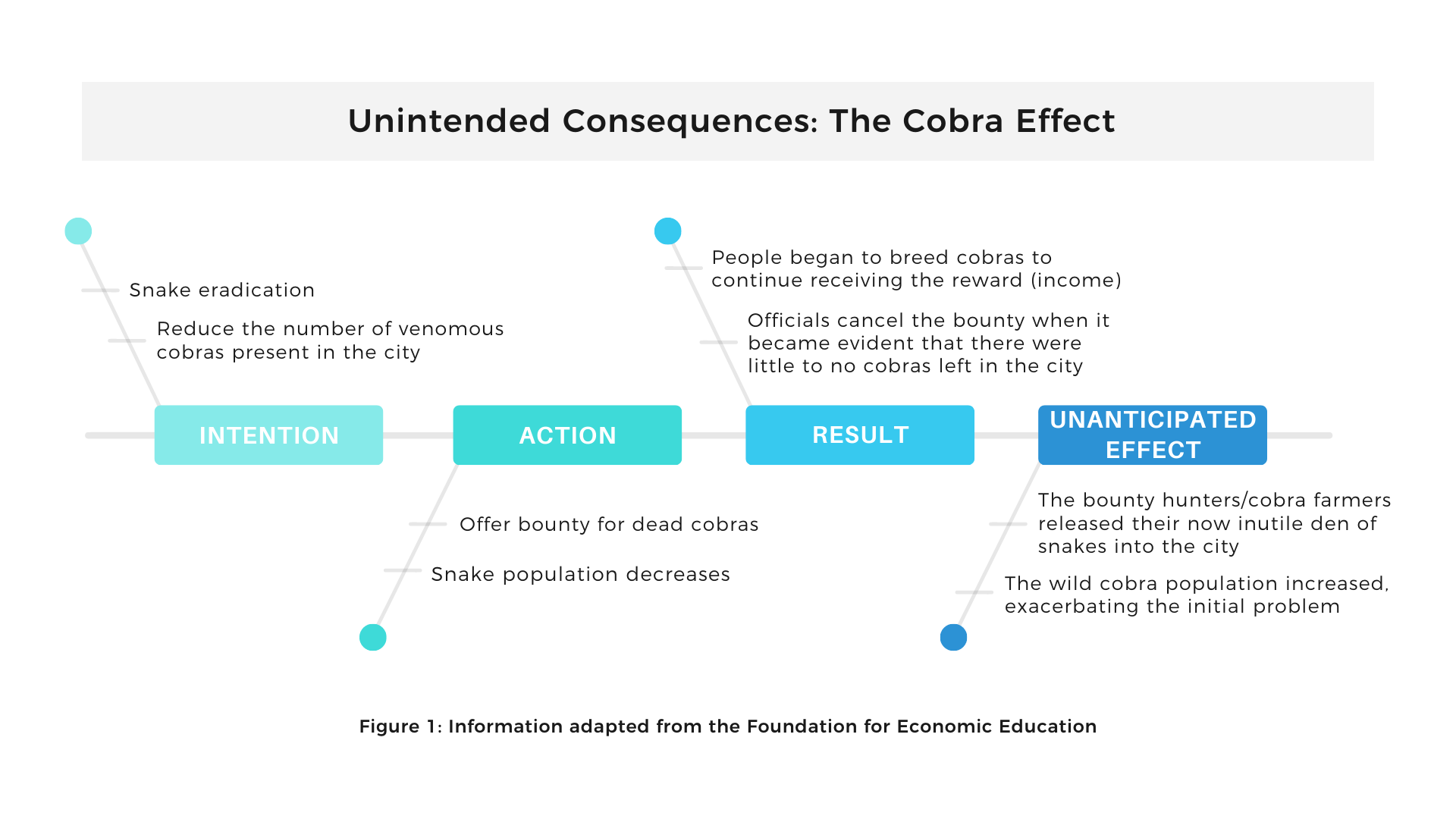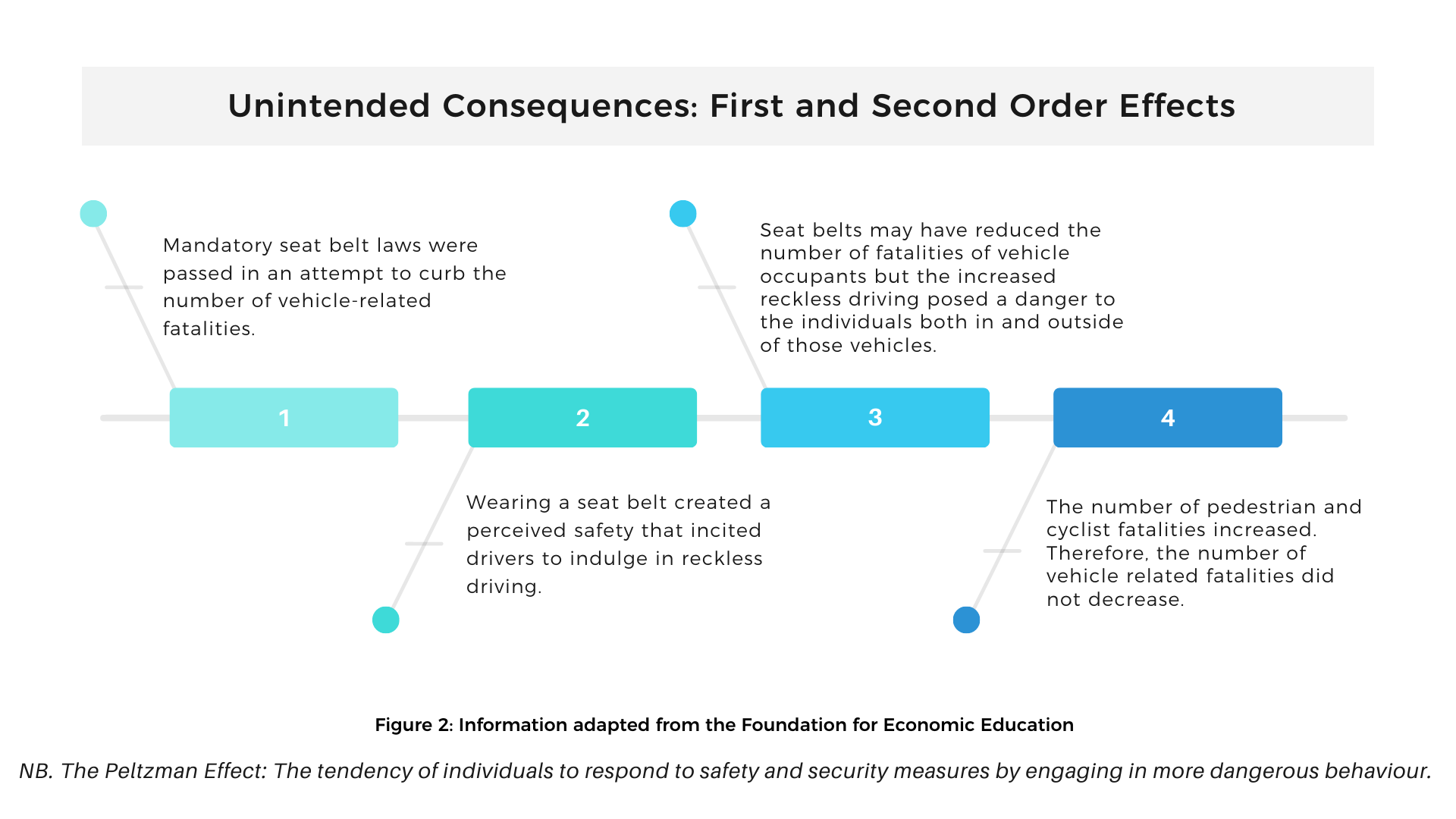A well-intentioned solution can often result in adverse effects, causing a problem to be worse than what it had initially been. While unintended consequences do not yield only negative results, they are very common. So common, in fact, that economists refer to it as ‘The Cobra Effect’, after an anecdote about the cobras that inhabited Delhi, India.

Similarly, in 1902, officials replicated the bounty scheme to help decrease the rat population in Hanoi, Vietnam. However, only their severed tails were required in exchange for the reward. This simply resulted in rats having their tails dismembered and allowing them to be released, which did nothing to decrease rat populations.
The above two narratives can be noted as examples of perverse incentives. This implies that it is the incentives behind a policy that negatively affects behaviour, creating an undesirable result, contrary to what was intended. This is true for animals as much as it is for society; referring to the dolphins at the Mississippi Institute for Marine Mammal Studies who were trained to keep their enclosure clean in exchange for treats. One dolphin cleverly realised that she could tear up large pieces of trash, creating numerous smaller bits to exchange for multiple rewards.
Psychology teaches us that a specific situation has expectations for people to behave or react in a particular way. Other than external rewards, an individual’s behaviour may be influenced by a myriad of other factors. These can include the media, social groups, cultural norms, internal desires, personal circumstances and religious beliefs. It is important to analyse all of these factors to enrich the process of decision-making. Social norms and cultural factors can influence things such as economic behaviour and political participation. This is the reason why different countries have tailored ways to develop their own public policies.
While unfavourable outcomes cannot be predicted with complete certainty, it would be advantageous to be proactive. Instead of acting abruptly with incomplete information, considering the adoption of an incremental approach may lower the impact of an unforeseen circumstance. Homa Zarghamee, an economics professor, says that a policy is better the more unanticipated effects it takes into account before being administered. In other words, unintended consequences will occur every time policymakers neglect to consider second-order effects.
While thinking about the next wave of happenings may be difficult, it is important to study the relationship between any two parties and anticipate what reactions may be provoked. In some circumstances, it is the consequence of a consequence that bears a more significant impact than what preceded.
The below diagram displays events that follow the implementation of safety measures. In this instance, regulators failed to consider an individual’s inclination to change their attitude in response to perceived levels of risk. Although the number of vehicle-accident related fatalities remained unaffected, the risk is now associated with a different group.

Unintended consequences occur every day; this is yet another facet that needs to be considered in all aspects of governance, risk and compliance. Whether it is the assessment of a risk or dissemination of a policy, there may be positive or negative consequences that fall outside the ambit of intent. How you prepare for such consequences will determine their ability to impact your organisation’s objectives.











